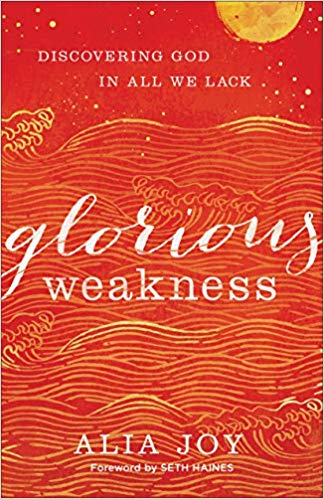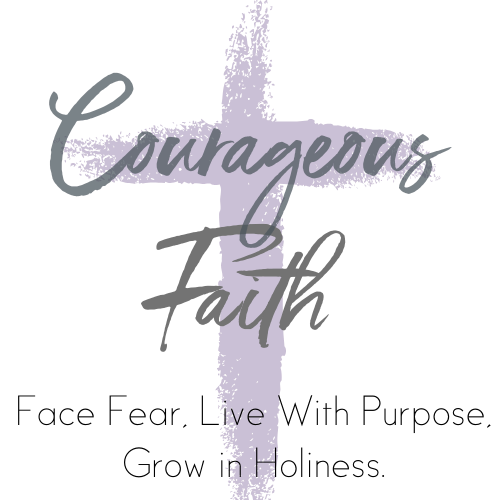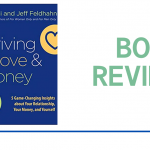
In Glorious Weakness: Discovering God in All We Lack, Alia Joy’s truthful and beautiful prose gripped my heart from the start. In fact, she’s such a gifted writer, it surprised me to find out this was her first book.
Her writing reveals the truth readers really want to know—real life that doesn’t always end with all the problems solved and hard questions answered. Alia Joy has endured leukemia, sexual abuse, poverty, miscarriage, and bipolar disorder. She shares what’s it’s been like to struggle through years of sickness, poverty, and weakness.
There are parts I read in tears, especially for the tragedy befalling a young girl violated while living in a community of missionaries. She brings to light how she processed her suffering and lack and how other believers often turned a blind eye.

Alia Joy shares what it was like living in a dung-style hut on the mission field and coming home to an unlivable missionary house in Hawaii.
“I listened to the preacher tell me the righteous who live by faith will see God’s pleasure and blessing, and I knew these were all lies. Because my parents were the most faithful. Everyone in the pews next to us would leave in shiny cars and go to their comfortable homes because they’d stayed in the States and had gone to college and advance their careers. They weren’t fools, like my parents, who believed God would provide. Those people new a degree, a good job, a savings account, and comprehensive medical insurance was the safety net that wise people put in place before obeying God. Trusting God wasn’t anything so foolish as total dependency on Him.

But as Alia Joy speaks openly about her questions and doubts concerning the goodness of God, there comes a point where she decides to focus on God’s abundance instead of her lack. She points us to our hope in God through our weakness and perseverance in suffering.
“How can we love the gospel and believe in its power if we honestly think anything we do or don’t do—whether goodness or sin—determines the kind of grace that reconciles us to God? Only Jesus, only Jesus’s blood and death and resurrection will ever amount to any accounting for my everlasting soul. It’s the most preposterous kind of grace, the kind we can’t earn or negate.”
“We reflect the holiness and sacrificial love of God in a miraculous way when we choose to identify with Christ’s suffering, not just when he identifies with ours, and what the world desperately needs is a church that looks more like Christ and less like a parody of how to be respectable, comfortable, and safe.”
Glorious Weakness shows it’s ok to seek, mourn, and question God like David did.
“The questions are the place to admit our need, not just for answers, but for awareness of who God is.”
When we see our desperate need for God, our weakness becomes the very place he meets us—through it, we experience the strength and hope of God.
I loved this book and highly recommend it!
I received a free copy of this book from Baker Publishing in exchange for my honest review.









 Hello there! I'm Valerie, a mom of four and wife of 27 years. My writing inspires others to cultivate courageous faith and find solace in trusting God, especially in moments of fear and uncertainty. Join me on this adventure as we explore the beauty of trusting God when we are afraid.
Hello there! I'm Valerie, a mom of four and wife of 27 years. My writing inspires others to cultivate courageous faith and find solace in trusting God, especially in moments of fear and uncertainty. Join me on this adventure as we explore the beauty of trusting God when we are afraid. 



